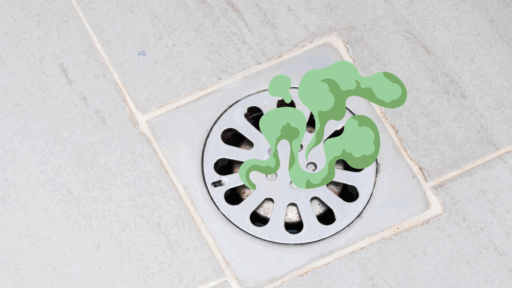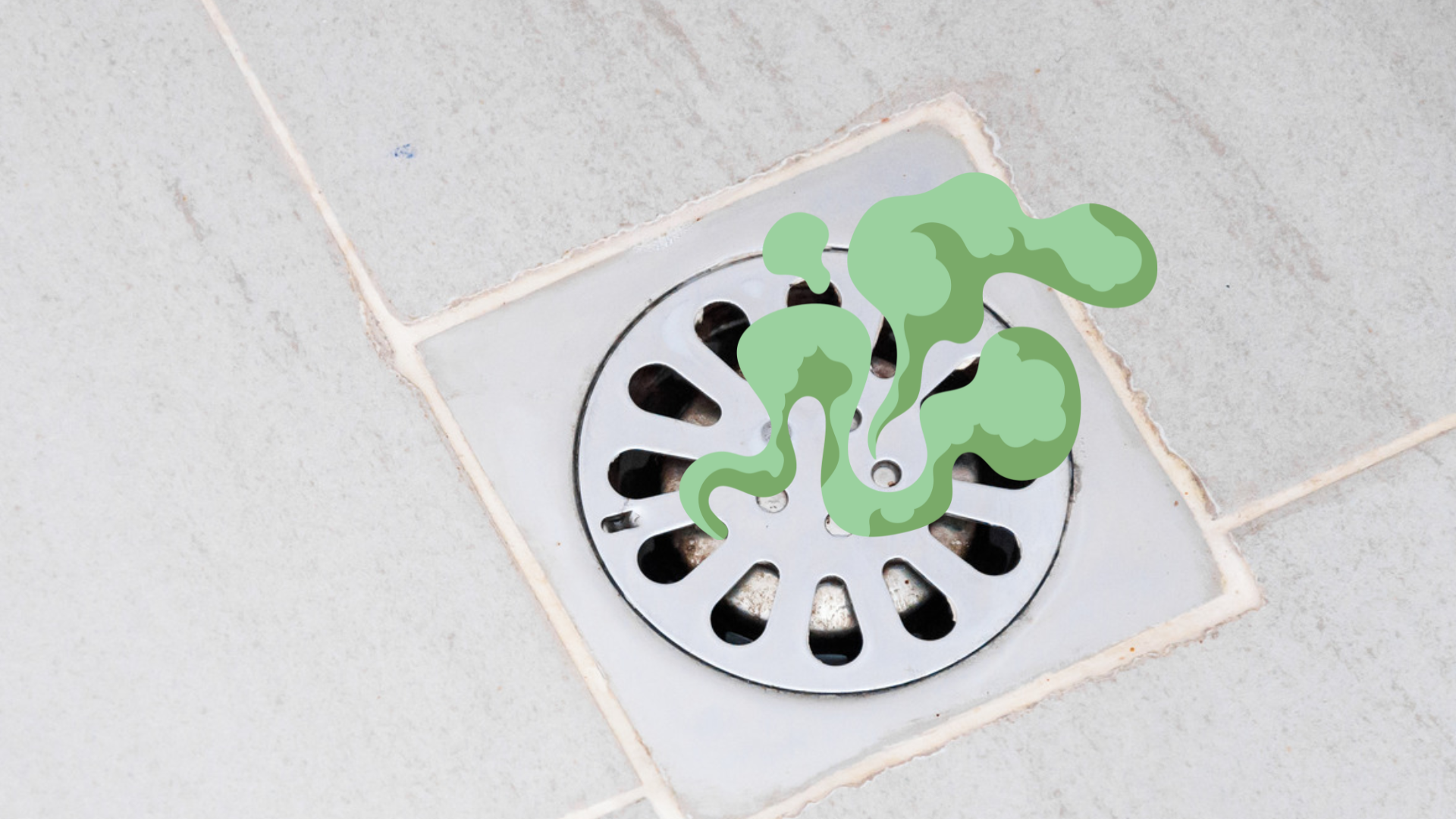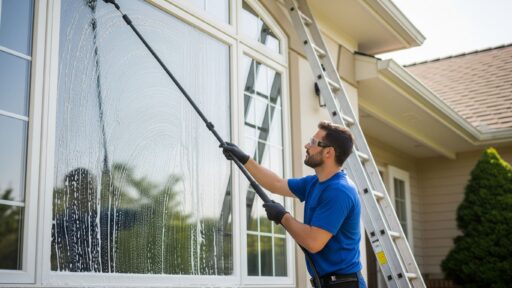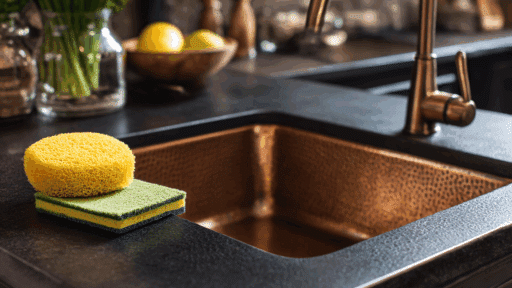I know how frustrating it can be when you walk into your home and get hit with that awful sewage smell. It’s embarrassing when guests come over, and honestly, it makes you wonder if something serious is wrong with your plumbing.
I’ve found that most sewage odors in homes have simple causes and even simpler fixes that you can handle yourself.
In this blog, you’ll get an answer to your question, the sewage smell in house. I’ll walk you through the most common reasons your house might smell like sewage and show you practical solutions to get rid of that unpleasant odor for good.
From dry P-traps to broken seals, we’ll cover everything you need to know to breathe easy in your home again.
How to Identify the Source of Sewage Smell in Your Home
Identifying the source of a sewage smell in your home is key to fixing it properly. I start by checking all sinks, toilets, and drains for dry P-traps, which can allow gases in if the water barrier evaporates.
Also, inspect the wax ring seals under toilets to ensure they are intact, as damaged seals cause leaks. Next, I look for clogged drains or slow drainage that might trap sewage buildup and emit odors.
Examining vent pipes on the roof helps, too; blockages there prevent sewer gases from escaping outside. If I notice wet spots or cracks near the foundation or in the yard, it could indicate a broken sewer line.
When these checks don’t isolate the source, I call a professional plumber to use specialized tests like smoke or camera inspection to accurately pinpoint the problem. This approach helps me address the smell safely and effectively.
Reasons: Why Sewage Smell in House

Sewage smell in the house can be very unpleasant and concerning. I’ve experienced this issue myself, and understanding the causes helped me tackle the problem effectively. The following are the seven common reasons sewage smell in house.
Dry P-Trap
A P-trap is a plumbing feature designed to hold water, which acts as a barrier to prevent sewer gases from entering the house.
When the P-trap dries out, there’s no water to block the gases, allowing the foul smell to seep in. I once neglected an unused bathroom for weeks, and the dry P-trap caused a strong sewage odor that vanished only after running water through the drain.
Blocked or Clogged Drain
Clogged drains can trap organic waste, which decomposes and produces a sewage smell. I noticed that hair and grease buildup in my kitchen sink caused the drain to clog and emit a persistent bad odor.
Regular cleaning and proper disposal of waste helped me eliminate the blockage and the smell soon after the drain was cleared.
Broken Sewer Line
A crack or break in the sewer line allows sewage gases to leak into the house foundation or basement. When I detected this, there was a strong, constant smell near the foundation walls.
It required a professional inspection and repair to fix the pipe, which eliminated the source of the odor and improved the air quality inside the house.
Vent Pipe Blockage
Vent pipes allow sewer gases to escape outside safely.
If the vent pipe is blocked by debris or a bird’s nest, those gases can’t exit outside and instead enter the home through the plumbing fixtures. I once found leaves clogging my roof vent pipe, causing a sewage smell inside.
Clearing the blockage restored proper ventilation and removed the odor almost immediately.
Sewer Gas Leak from Toilet
Sometimes the wax ring seal between the toilet and the drain pipe wears out or breaks. This can cause sewer gases to leak into the bathroom.
I noticed a foul smell surrounding my toilet, which was traced to a damaged wax ring. Replacing the ring sealed the leak, eliminating the sewage smell and preventing further odor issues.
Mold and Mildew Growth
Sewage smell may sometimes be confused with mold and mildew odors, which thrive in damp, dark areas related to plumbing leaks.
I found that a slow leak behind my bathroom wall caused mold growth and a musty, sewage-like smell. Fixing the leak and treating the mold cleared the air and stopped the unpleasant odor from lingering.
Sewer Backups
A sewer backup occurs when wastewater flows back into the home’s drains due to blockages or heavy rain. During one intense storm, sewage backed up into my basement drain, causing a horrible smell and a potential health hazard.
Quick cleanup and professional plumbing help were essential to restore normal flow and eliminate the offensive odor inside the house.
Solutions for Sewage Smell in the House
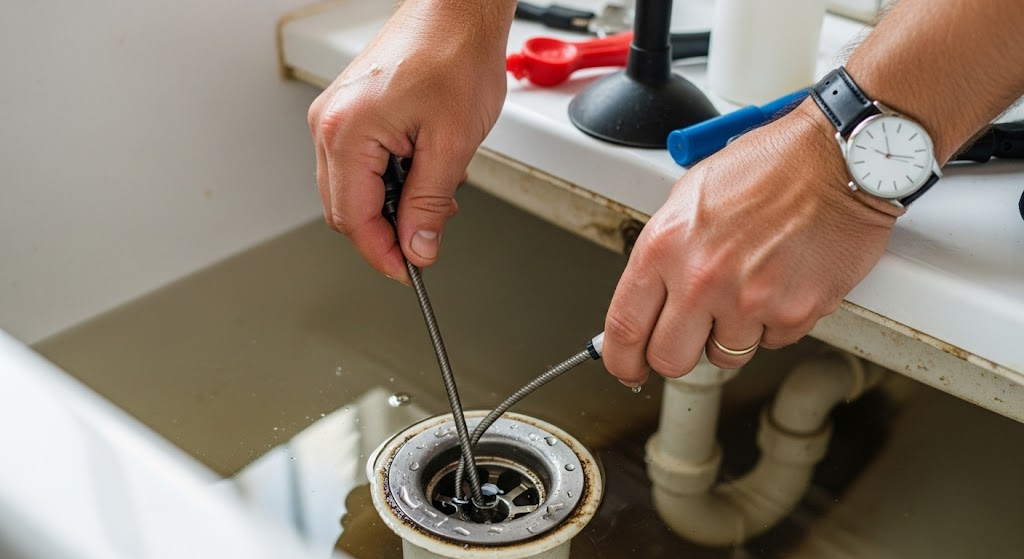
Sewage smell in the house is not just unpleasant but can signal underlying plumbing or ventilation problems. From personal experience, addressing these odors quickly is essential to maintaining a healthy and comfortable home.
The following are the solutions I found effective to eliminate sewage smells:
1. Refill and Maintain P-Traps
P-traps hold water that blocks sewer gases from coming inside. I regularly pour water into unused drains every few weeks to keep these traps full. For rarely used fixtures, sometimes add mineral oil since it evaporates more slowly than water.
Keeping P-traps filled forms the first line of defense against sewage odors because an empty trap lets gases flow freely into the house.
2. Clear Blocked Drains and Use Natural Cleaners
Clogged drains can trap debris that causes bad smells. I use a mixture of baking soda and vinegar poured down the drain, followed by hot water to clear organic buildup.
Regularly plunging and cleaning prevents clogs from forming. This natural method is effective for maintaining drain flow and reducing odor without harsh chemicals.
3. Inspect and Clear Vent Pipe Blockages
Vent pipes allow sewer gases to safely exit outdoors. I inspect roof vents for blockage caused by leaves, nests, or debris.
Removing these obstructions restores proper ventilation and prevents gases from backing up into the home. If blockages are inaccessible or persistent, hiring a professional plumber is the best option.
4. Replace Faulty Wax Rings Around Toilets
A damaged or old wax ring seal beneath the toilet can leak sewer gases. When I noticed this, removing the toilet and replacing the wax ring sealed the leak effectively.
Careful installation avoids wobbling and ensures a proper odor barrier. This fix is critical for eliminating persistent smells in bathrooms.
5. Repair Broken or Cracked Sewer Lines
If smells come from the basement or foundation, sewer line damage might be the cause. I checked my yard for wet spots and unusual odors near foundation walls and called professionals to inspect and repair the pipes.
Early repair prevents larger leaks and contamination, solving odors at their source.
6. Use Enzyme Cleaners for Organic Buildup
In addition to natural remedies, enzyme-based drain cleaners help break down organic matter inside pipes, reducing odors long-term.
I use these periodically to maintain clean plumbing without risking pipe damage that harsh chemicals may cause.
7. Improve Home Ventilation and Air Purification
Finally, I improve indoor air quality by ventilating rooms well, opening windows, using exhaust fans, and sometimes installing air purifiers with activated carbon filters.
These steps help remove lingering odors and refresh the air while plumbing solutions take effect
Health Risks and Why You Should Act Fast
The health risks of sewer gas smell in the house are serious, and I learned that acting fast is crucial. Sewer gas contains harmful gases like hydrogen sulfide and methane, which can irritate the eyes, nose, and throat, causing headaches, dizziness, nausea, and shortness of breath.
Prolonged or high exposure can lead to severe problems like unconsciousness or even death. I realized ignoring the smell can worsen these issues and create a toxic environment.
Also, methane is flammable, posing a fire hazard. Because of these dangers, I made it my priority to identify and fix the source quickly to protect my health and that of my family, ensuring fresh and safe air inside our home.
Wrapping It Up
Dealing with sewage odors in your home doesn’t have to be a nightmare. Most of the time, these smells come from simple issues like dried-out traps or loose connections that you can fix in minutes.
I’ve shown you the main culprits behind the sewage smell in house and given you step-by-step solutions to tackle each one. Start with the easiest fixes first, check those P-traps, and clean your drains. You’ll be surprised how often these simple steps solve the problem completely.
Don’t let sewage smells make your home uncomfortable any longer. Try these solutions today and reclaim the fresh, clean air you deserve in your living space.

